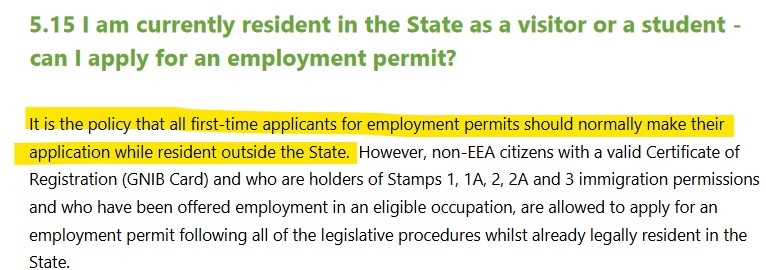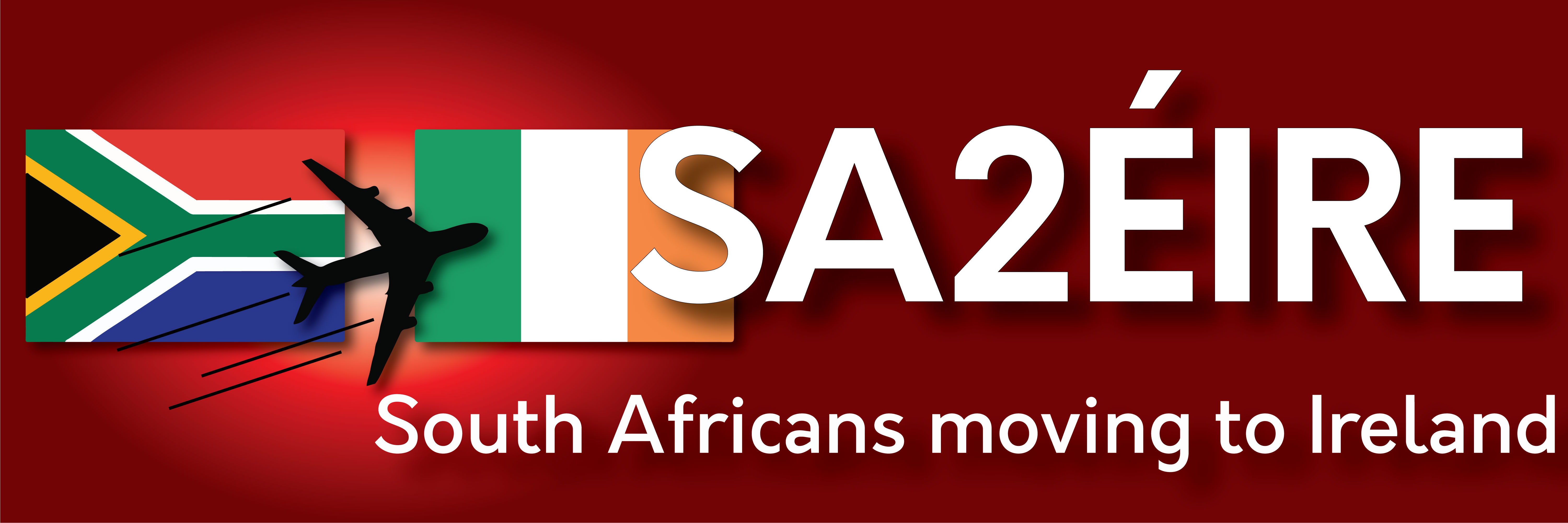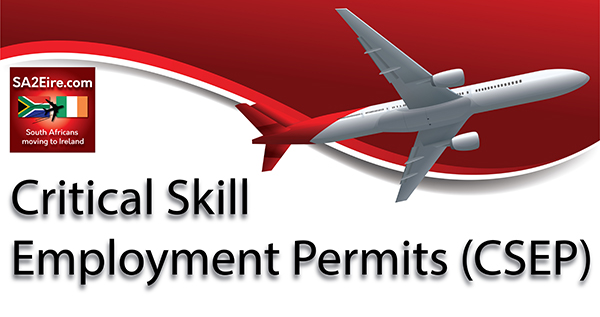Critical Skills Employment Permits (CSEP) are issued by the Department of Enterprise, Trade and Employment (DETE)
Eligible occupations under this type of permit are deemed to be critically important to growing Ireland’s economy, are highly demanded and highly skilled, and in significant shortage of supply in our labour market.
Eligibility for a Critical Skills Employment Permit is largely determined by the type of occupation, and proposed remuneration level.
The Critical Skills Employment Permit is attractive for a number of reasons:
- Because the skills are identified as being in short supply, a Labour Market Needs Test is not required.
- Permit holders can apply for immediate family reunification from the Irish Naturalisation & Immigration Service of the Department of Justice and Equality and once their dependants/partners/spouses are resident in the State they are eligible to seek any employment and apply to the Department of Business, Enterprise and Innovation for a Dependant/Partner/Spouse Employment Permit which is currently issued free of charge, only registration fees are paid for not a work permit.
- Permit holders may apply to the Irish Naturalisation and Immigration Service for permission to reside and work without the requirement for an employment permit upon completion of the Critical Skills Employment Permit’s duration.
The Employer
The normal criteria for employers apply, which seek to ensure that the employer is a genuine and legal employer, so as to give a level of reassurance that the employment rights of employees will be adhered to.
The Department of Business, Enterprise and Innovation examines a number of criteria when assessing employers including:
- Applications will only be accepted from employers that are registered with the Revenue Commissioners and with the Companies Registration Office and which are currently trading in the Ireland.
- That an employer – employee relationship will exist in that the prospective employee concerned will be employed, salaried and paid directly by the employer.
- An employment permit will not be granted to companies unless 50% or more of the employees in the firm are EEA nationals at the time of application.
- The 50:50 rule is waived in certain circumstances see the website HERE
In other words, the employer needs to be an Irish company, registered in Ireland, proof of their up to date tax returns and 50% of their staff in their employment must be Irish, EU or British citizens in order for them to offer you a job.
The Employee
- Occupations with a minimum annual remuneration of €32,000 for a restricted number of strategically important occupations contained in the Critical Skills Occupations List a relevant degree qualification or higher is required.
- All occupations with a minimum annual remuneration of over €64,000, other than those on the Ineligible List of Occupations for Employment Permits or which are contrary to the public interest.
- A non-EEA national who does not have a degree qualification or higher, must have the necessary level of experience for the €64,000 to apply.
- The prospective employee concerned must have secured a 2 year job offer in respect of the eligible occupation from the prospective employer.
- The prospective employee concerned must possess the relevant qualifications, skills and experience that are required for the employment.
In other words, the employee must be qualified and experienced in that field, where applicable. In certain careers you have to have the formal degree in that field, an obvious example would be a Medical Doctor, if you have a Nursing degree you can't work as a Doctor. However, where this can be blurry is often in a career like I.T. where you may have done courses or modules of study to qualify in that field. In all circumstances (except if a career is an ineligible one) if the salary is over EUR64,000 you can apply for a critical skills work permit, if you have experience alone and no qualifications. It also needs to be a 2 year contract of employment.
"How do I know if my qualification is equivalent to an Irish degree?
The eligibility criteria for a Critical Skills Employment Permit include a requirement that the prospective permit holder must hold:
• a third level degree relevant to the employment concerned if the annual remuneration on offer is €32,000 or more, or
• a third level degree relevant to the employment concerned or necessary experience if the annual remuneration on offer is €64,000 or more.
Qualification levels in Ireland are determined by QQI (Quality and Qualifications Ireland) and that body is the appropriate authority to confirm whether the level of a qualification achieves the NFQ level 7 or above (ISCED level 6 or above) which is required for Critical Skills Employment Permit
eligibility.
Information on the recognition of foreign qualifications can be found at NARIC Website. If you feel that your qualifications are equivalent to an NFQ level 7 qualification (ISCED level 6) or above, confirmation from the QQI of the equivalence of your qualifications must be provided.
Foreign nationals who are the holders of diplomas which equate to level 6 on the NFQ are not eligible for a Critical Skills Employment Permit but may apply for a General Employment Permit." Enterprise.gov.ie
Recognition of qualifications and Registration with Irish bodies or organisations
Its is very important to check if you need your qualifcations from SA education institutions are recognised and if you need to register with an Irish body or organization in order to work in Ireland in that career.
These registrations can take months to process, and without that registration your work permit will be declined, and in some cases companies wont even look at you until you’re registered.
Check HERE
Be sure to check if your career requires registration with an organisation or body before you apply for work.
Here is a tool to look up your schooling or degrees and see what the National Framework Qualification (NFQ) is from South African terminology into Irish terminology HERE: NARIC
On receipt of a valid job offer, how to apply for a work permit
Applications for a Critical Skills Employment Permit should be made to the Employment Permits Section of the Department of Enterprise, Trade and Employment (DETE).
The employer or the employee can apply.
Some Critical Skills Work Permits may be processed faster depending on whether the company is registered as a Trusted Partner or not.
An application for any employment permit must be received at least 12 weeks before the proposed employment start date.
The processing fee for a Critical Skills Employment Permit is €1,000.
An application to apply for a Critical Skills Employment Permit can be made online on the Employment Permits Online System.
Work Permit Seekers and looking for work whilst on Holiday/Visiting in Ireland
No, you cannot seek work whilst in Ireland and you cannot come to Ireland until that work permit is approved.

Dependants
You can have your spouse (married), partner and minor dependant children (under 18 years) join you once you have your Critical Skills Employment Permit.
Read more on Dependants in our SA2Eire looking deeper into Critical skills work permits and how they work
And on your spouse and children and the conditions of your work permit on them: Spouses and Children of Work permits and their Stamps explained
If you are not married, the De facto partner will need a De facto visa applied for in advance De Facto (unmarried) Partners and Proofs required
Entry Visas for South African passport holders
If you, your spouse and children are all South African Passport holders, you do not need an entry visa into Ireland.
This is because Ireland and South Africa have a special agreement that allows South Africans to enter Ireland visa free.
This entry however is subject to having sufficient paperwork at entry, this is discussed later in the Resources section “Entry into Ireland.”
At entry into Ireland you will get an entry stamp of up to 90 days for all South African members of your family. This entry stamp will be placed in the South African members passports.
An employment permit is not a Residence Permission.
In order to be lawfully resident in the State, it is a requirement that all non-EEA nationals in possession of an employment permit must register with the Garda National Immigration Bureau. The cost of this residency stamp for each applicant is EUR300 per dependant over the age of 16years
See link below on how the family registers at Garda Immigration when they arrive and Renewals of Residency stamps.
Work permit holders and travel to the EU and UK
Once a South African passport holder is in possession of the IRP card, they can apply for visas for the UK (Standard UK visitor visa) or the EU/EEA to the country they want to visit.
Holding an IRP for Ireland does not automatically give rights to travel to the EU/EEA or UK. The IRP is permission live and work in Ireland alone.
If the country is in the Schengen zone that you wish to visit, you apply for a Schengen visa for that country.
If any other country, apply direct for that country.
Special notes for Critical skills work permit holders
Note if you are a Doctor:
- Very often Doctors receive only 1 year work offers from the hosiptal or practice where they apply for work. As a result this does not give you a Critical Skills Work Permit, instead you get a General Work Permit. However, the Minister of Justice has made allowance for this in giving immediate family reunification as exceptional circumstances. Please do email the work permit department for clarification: This email address is being protected from spambots. You need JavaScript enabled to view it.
- A new announcement affecting medical doctors and their families announced 8/3/22
SA2Eire are going to go through this process step-by-step with you:
-
Types of work permits and articles:
- Work Permit skills lists: Am I eligible and SOC codes
- Critical skills work permits how they work: The Basics of applying (this article)
- Critical skills going deeper into the information and getting a job offer and work permit
- General Work permits how they work: The Basics of applying
- General Work permits going deeper into the information and getting a job offer and work permit
- General Work permits how to get your family processed when they arrive after 12 months
- Spouses and Children of Work permits and their Stamps explained
Important links:
 #MapMyMove- Our coaching Services - Confused or lost and need some direction, book a session with us to help untangle the confusion and work out your route of immigration
#MapMyMove- Our coaching Services - Confused or lost and need some direction, book a session with us to help untangle the confusion and work out your route of immigration
 Critical Skills Work Permits - Citizens Information site
Critical Skills Work Permits - Citizens Information site
 Critical Skills Work Permits - DBEI Site
Critical Skills Work Permits - DBEI Site
 Employment Permits Online System (EPOS) - Online application for the work permit after receiving a valid job offer
Employment Permits Online System (EPOS) - Online application for the work permit after receiving a valid job offer
 Processing times and dates - where applications are up to now in terms of processing times
Processing times and dates - where applications are up to now in terms of processing times
 Employment Permit Applications - Online Status Update Enquiry
Employment Permit Applications - Online Status Update Enquiry
 Register at Garda Immigration - How to register at Garda Immigration and Renewals of Residency stamps
Register at Garda Immigration - How to register at Garda Immigration and Renewals of Residency stamps
 Do I need an entry visa if I am coming to work?
Do I need an entry visa if I am coming to work?
 Salary Guides - What to expect as a salary in certain careers and parts of Ireland
Salary Guides - What to expect as a salary in certain careers and parts of Ireland
 Documents you need for Entry into Ireland
Documents you need for Entry into Ireland
 Family Reunification - If you are bringing family with you to Ireland
Family Reunification - If you are bringing family with you to Ireland
 De Facto (unmarried) Partners and proofs required under EU Treaty - For unmarried people who want to do the EU Treaty with their partner
De Facto (unmarried) Partners and proofs required under EU Treaty - For unmarried people who want to do the EU Treaty with their partner



